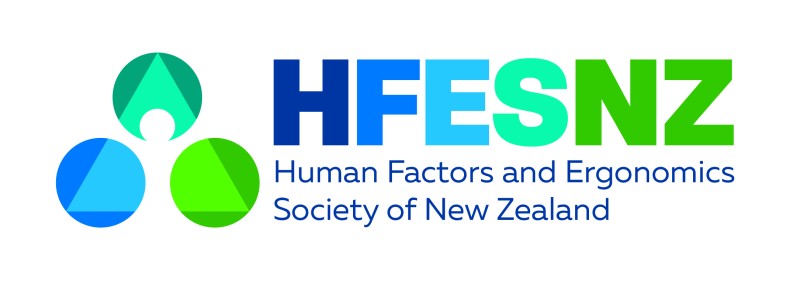August 2023 Newsletter
Tēnā koutou katoa
Welcome to our Winter newsletter with all things AGM and Conference wrap up.
Please send any information or news that you would like included in the next edition to gwandkg@gmail.com, news@hfesnz.org.nz or admin@hfesnz.org.nz
Ngā mihi nui
Karen Goodfellow, HFESNZ Editor
In this newsletter
- AGM
- Conference
- Membership
- Professional Affairs Board
- HASANZ
- Special Interest Groups/WebinaR
- IEA News
- General news
AGM Summary
The AGM was held on June 15, 2023.
Minutes of previous meeting and Annual report were discussed. Both motions were accepted and moved.
The treasurer presented the financial report which showed the societies financials were in a good position. The motion was accepted and moved.
Membership motion - The HFESNZ membership criteria changes motion was discussed. After a robust conversation, the motion was withdrawn to further refine the details in conjunction with Professional members in the coming weeks.
Election of officers - We saw a number of personnel changes to the HFESNZ and PAB committees. A special thanks to Vanessa, Karl, Hannah and Charlene who have stepped down from their roles as Chair, Treasurer, PAB convener and PAB member respectively. Thank you for your dedication and diligence you have all shown over recent years. We wish you all the best in your new endeavours. Post-AGM, we acknowledge Matt who has also stepped down from committee, thank you Matt for your input and contributions.
Congratulations to our new Treasurer, Bikram Pandey, new committee member Parul Dagar, and PAB convener Leanne Hunter for stepping into these important roles. The 2023-2024 HFESNZ committee consists of Stephven (Chair), Bikram (Treasurer), Fiona (Secretary), Vanessa, Karl, Hamish, Karen, Carole, Tahlia and Parul. The PAB committee consists of Leanne (Convener), Rachel, Sarita, Nicola and Karl.
General business - The Workforce Development Project has formally concluded. A number of ongoing activities will continue such as the new postgraduate qualification, the mentoring programme (now run by PAB) and finalisation and update of the competencies and membership categories (under review). HFE scholarships are currently on hold. However, in the absence of HFE-specific funding, future applicants are required to apply for the ‘general’ HASANZ scholarships stream.
The AGM was formally closed followed by an insightful presentation by Karl about his recent attendance at the International Association for the Advancement of Space Safety in Japan.
Stephven Kolose
HFESNZ 2023 Chair
Profile of committee member and new Treasurer - Bikram Pandey
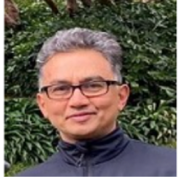
I come from engineering background with research/specialisation interest in health and safety. Currently at Massey University coordinating some of the OSH courses Massey offers.
I joined the HFESNZ in 2021 as a general member and later as one of the committee members. I have thoroughly enjoyed working/connection with a lot of amazing people through the society. Thinking I can and should be of service to the work and activities of the society, I put my hand up for the role of treasurer. And here I am very much looking forward to it.
Conference 2023
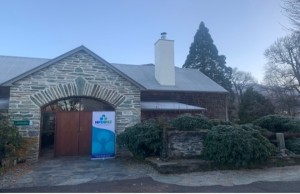
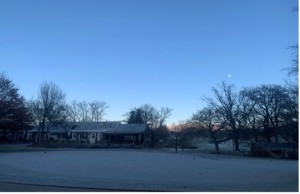
Conference venue The Milhouse with an early morning and frosty start to the first day.
Overview
The 2023 HFESNZ annual conference was held at Millbrook Resort, Arrowtown between July 5 – 7. The theme for the conference was on ‘service’ or ‘Human Factors and Ergonomics (HFE) serving people’. The conference was sponsored by ErgoHuman© and Joint Action Solutions©. The conference committee consisted of Leanne Hunter, Fiona Trevelyan, Karen Goodfellow, Carole Unkovich and Stephven Kolose.
Delegates and presentations
A total of 43 delegates and support staff attended the conference; this number exceeded the conference committees’ expectations. Organisations represented included, WorkSafe NZ, AUT, Massey University, Otago University, Victoria University, Loughborough University, CAA, Taxtix Sener, WSP, SCION, Mackie Research, CHASNZ, HFESA, Te Whatu Ora, Sound Health Pty, WELL Australia and Ports of Auckland. Delegate professional backgrounds consisted of scientists, private consultants, physical ergonomics, systems ergonomics, medical and healthcare, entrepreneurs, academics, consultants, safety specialists, psychology, physiotherapy, and physiology.
Presentations - The conference consisted of 21 presentations (including two 1-hour keynote presentations) spread over two days, and one panel discussion. Each presentation was 20 minutes long with 5 minutes for questions.
Day 1 - covered various topics related to HF integration with transport infrastructure; systems thinking in the real world and means to reduce complexity; driver sleepiness among London bus drivers focussing on factors such as shared responsibility, holistic approach, and an open culture; PhD thesis looking at the relationships between pilots and engineers; optimising level crossings for driver safety by understanding driver behaviour when turning right on to level crossings; designing for trust and technology adoption using acceptance models; augmented reality and its advantages over paper-based maintenance in forestry industry; physiological (EMG) biofeedback among forestry machine operators; ergonomics applications and innovations for rural wildfire firefighting; innovative ergonomics applications designed to assist workers with physical disabilities; and an update on the DPI, and musculoskeletal reduction programmes at WorkSafe NZ.
Day 2 - covered the exciting frontier of aerospace medicine and the role of HF in space exploration and research; research and application of the PHIRES toolkit for NZ healthcare; an injury prevention framework for the healthcare industry and innovative case study to address musculoskeletal concerns of hospital kitchen staff; development of a psychosocial hazard work re-design tool (PhRed-T) and addressing psychosocial factors at a systems/organisational level; overview on the CHASNZ ‘work should not hurt’ programme and benefits for reducing injuries among construction workers; addressing the need for improved HF and safety risk training (and awareness) for industry placements/school-based traineeships in Australia; an overview of Ports of Auckland workplace initiatives including health monitoring, rehabilitation and addressing mental health); and the latest research on self-driving vehicles (pros and cons).
Keynotes and panel workshop
Keynotes - The conference consisted of two fantastic keynote speakers. Professor Phillip Morgan (University of Cardiff) spoke about his journey as a cognitive psychology student in Wales, his work on AI, measuring human cyber vulnerabilities, and large-scale cyber projects at Airbus and HF Transport research at the University of Cardiff. He also shared interesting views on whether automation can increase or at times, reduce safety in our everyday lives. Professor Peter Buckle (Imperial College) spoke candidly about his career in HF. Highlighting the need to ask relevant questions for design, focussing on psychosocial as much as the physical, difficulties in having solutions and execution, analysing interventions from value proposition, organisational drift and finally, his life as a stand-up comedian!
Both keynotes approached service from two different perspectives. Professor Morgan spoke about the impact of AI and cybersecurity on organisations and users, while Professor Buckle spoke about his career in ergonomics and the importance of connecting with people.
Panel workshop – a panel workshop was conducted at the end of Day 2 to discuss the future of HF professionals, likely new and emerging topics to impact HFE and strategies to navigate these changes. The panel was facilitated by Associate Professor Felicity Lamm, and consisted of four panellists Dr Fiona Trevelyan, Professor Joanne Crawford, HFESA Chair Sharon Todd and Professor Phillip Morgan.
Networking and special events
Opening evening - On Wednesday the conference kicked off with a welcome evening at the Clubhouse restaurant. This was an opportunity for the delegates to meet, become acquainted with one another and to relax after travel to this beautiful venue. The highlight of the welcome evening was a special presentation from Mr David Clark, Director at the Lakes District Museum in Arrowtown. His presentation covered the early history of the local area including the settlers, the gold rush, the change in landscape and other amazing facts. It was an excellent start to the conference and enjoyed by all.
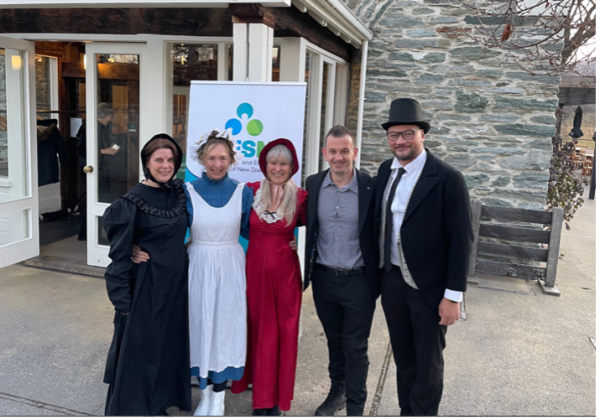
Conference dinner - The conference dinner was held at Clubhouse restaurant. Delegates were treated to an array of dishes from the Millbrook team, followed by networking drinks, and a chance to dance to a live band, the amazing and talented Chad & Pol acoustic duo from the Queenstown music scene.

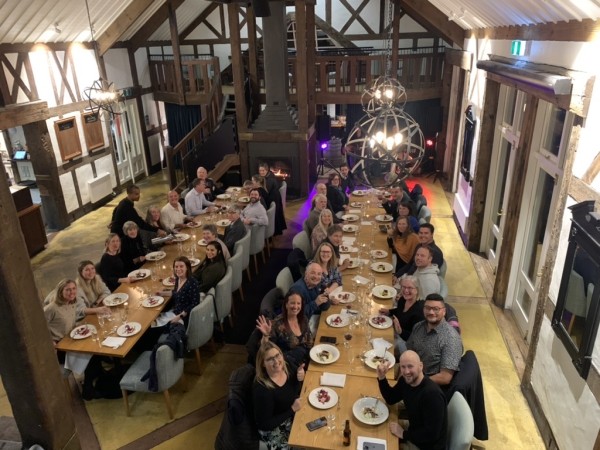
Best presentation award - Delegates voted for the best presenter outside the keynote speakers. The winner was drawn by ErgoHuman Director, Robert Walker. The winning prize of the ErgoHuman Elite II chair for best presentation went to Dr Tahlia Fisher who presented on communication styles between pilots and engineers.
Congratulations Tahlia.

Service theme
With regards to the theme on ‘service’, many presenters provided their thoughts and perspectives. Service was perceived as focussing on the needs of people, going above and beyond for a common cause, but worthwhile cause; service is providing ‘joy’; the end of all knowledge should be ‘service to others’; service is about being open minded; inquisitive and working in partnership; using your skills and expertise to contribute value to the world; helping people with physical disabilities. These perspectives reflect on the core values of human factors and ergonomics.
Conference review
Delegates were asked to provide their thoughts and perspectives on the conference using an evaluation form. Of the 43 attendees, 30 completed the forms (those that were missing were either committee members or left due to early flights). The results are as follows:
Venue and location - Most participants thought the venue and location were amazing and fantastic! Others thought it would be useful to have a map of the location. Overall, delegates were extremely happy with the facilities, AV, food, accommodation. The conference room was the perfect size for the number of people attending.
Presentations - Delegates appreciated the diversity in terms of topics covered, and industries represented at the conference; good balance of theory vs practical/innovative-based presentations. The short (20 min) presentation times were appreciated. Presentations were managed well (kept to time). Non-HFE delegates appreciated the learning about ergonomics and its many forms in industry and research. There was a good balance of presentations by existing and new (to the society) members. One delegated noted that the conference was “a comprehensive pulse-check of human factors across Aotearoa”.
Conference organisation - Most delegates were extremely happy with the organisations in particular, the timekeeping and ‘single-stream’ nature of the conference. Some were pleased to see existing society members introducing the speakers (gives visibility of the society and the member). Many thought that the conference was run smoothly by the conference committee and that they clearly worked as a team throughout the 3 days. Others commented on the great mix of networking/special events e.g., welcome evening, best presentation prize, conference dinner.
Improvements - Overall delegates were genuinely happy with the conference. Some thought that the marketing and promotion for the conference in the days leading up to the conference could have been better, the coffee que management could have been better. Some thought the conference could have a little more breaks while others thought there were sufficient breaks. Some delegates thought that the high cost was the biggest disadvantage (and only disadvantage) for the conference. Some preferred more networking opportunities throughout the day, more UX (user experience). Defence and student presentations; Some wanted and better-quality coffee.
Future events - More presentations from non-HFE members. Have HFESNZ introductory webinar or event for those who don’t know much about HFE or want to join. HFESNZ should have a slot on every Safety conference leading up to the HFESNZ conference to introduce and sell who ‘we’ are. Some wanted to see more health and business delegates attend. Some suggested holding the conference at a venue and location that is more affordable and easier to get around while others praised and encouraged more conference to be held in the regions. Some wanted a student symposium, more events to be at Millbrook and to keep future conferences focussed on multi-disciplinary in nature. One suggestion was to hold the next conference in the city to increase numbers and potential members. Many delegates wanted more keynote discussion and increased panel or discussion times. More involvement by UX (user experience) researchers or with UX researchers.
Conclusion
The 2023 HFESNZ conference was a resounding success on many fronts. It succeeded all expectations in terms of presentations, networking and advertising our wonderful society. Financially, we broke even and even made a small profit on the event, which we are taking as a story of success and an example of good service to our members. While successful, we have learnt many more ways to improve future events of this nature for HFESNZ.
On behalf of the conference team, I’d like to thank all our members for your support during the planning, running, and advertising of our conference this year. A special thanks goes to Karen Goodfellow for her tireless work on the ground in Arrowtown over the last 6 months (and beyond).
Finally, thank you to our amazing conference team of Leanne, Fiona, Karen, and Carole. The robustness, work ethic, attention to detail, and ‘service’ you provided for this conference was the real secret to this year’s conference success. A lot of Monday meetings (approximately 60 hours), overtime and late nights went into the planning for this event. The society thank you for your service.
Thank you also to Vanessa, Karl and the HFESNZ committee for supporting this event.
Ia manuia lava fuafuaga a le tausaga, fa’afetai mo mea uma. Enjoy the remainder of 2023 thank you for all your help.
Kind regards
Stephven Kolose – Conference 2023 convener
Membership matters
- Shaun Bowler
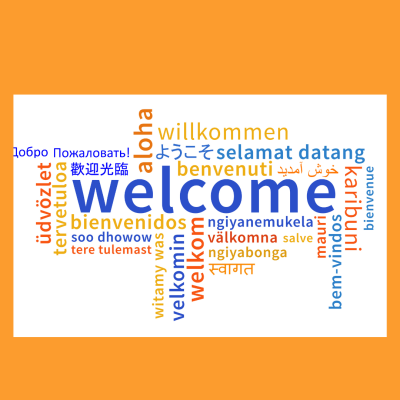
We still have a number of member renewal invoices outstanding. I will be emailing these out again this week. If you could please get in touch with me regarding payment. Thank you!
PAB
The June AGM saw Hannah Trevett stand down at the end of her term as PAB Convenor and is replaced by Leanne Hunter. A special mention and thank you to Hannah, who despite her move to Melbourne and all that a country and new job move entails, continued as Convenor. Leanne has been on the PAB Committee for the last 2 years and is stepping into the Convenor role for the second time, a position she held around 5-6 years ago. The new
PAB Committee consists of Dr Nicola Green, Dr Sarita Dara, and Dr Karl Bridges, all have been involved with HFESNZ for many years.
The PAB meet 3 times a year to complete Professional Membership application reviews, our next meeting was planned for the 3rd October, this will need to be rescheduled until the following week due to members being on leave (tentative date 11th October). For any
Professional Membership enquires please contact the Convenor at profmember@hfesnz.org.nz. Please note, all material must be sent to the Convenor at least 3 weeks beforehand as the assessors need time to read the material before the meeting.
Leanne Hunter
Convenor PAB
HASANZ
The HASANZ GG meeting and AGM was held on 27th July. See the Annual report here. https://www.hasanz.org.nz/assets/Uploads/HASANZ-Annual-Report-2022-2023-1.pdf
Here are the main updates:
- Representation on the HASANZ Governance Group will be shared between Hamish Mackie and Joanne Crawford moving forwards. Joanne joined Hamish at the above meetings. This is particularly useful given ongoing issues and opportunities in H&S Education.
- The HASANZ Register is now 5 years old! Discussions are underway to review how the HASANZ register works so if you want to have input, please contact Vanessa Beanland or Hamish Mackie.
- The HASANZ website has been refreshed that the HASANZ register is now integrated
- Mike Obrien and Joanne Crawford on RNZ talking about H&S and threats to related education Concern for workplace health and safety course | RNZ
- The updated strategy documents can be viewed at the following link with the one page summary: Strategy Overview document One page summary
HASANZ Conference
- 18th to the 20th September 2024 pencilled in at Te Papa and Takina (the new conference centre across the road from Te Papa).
Special Interest Group and Webinar
Healthcare .
By chance we are fortunate to have Dr Shanqing Yin (bio below) to present our next webinar while he is currently in New Zealand. All are welcome to attend, an email invite to members and request for registrations will be sent out soon.
September 13th at 7.30pm
Healthcare Human Factors: Past, Present, & Foreseeable Future. Since the release of the Institute of Medicine's seminal report "To Err Is Human" in 1999, healthcare systems worldwide have recognized the critical importance of incorporating human factors capabilities into their operations. The integration of human-centered solutions and the involvement of human factors specialists within healthcare operations have proven instrumental in saving lives and improving patient outcomes. However, as medical innovation and digitization continue to reshape the healthcare landscape, and with the evolving demands placed on healthcare systems, the journey to integrate human factors remains both challenging and dynamic. This presentation provides an overview of Singapore's ongoing experience in adopting human factors principles and methodologies within the local healthcare systems. Specific examples that range from site-specific efforts to nationwide initiatives will be highlighted. This sharing sets the stage for collaborative, cross-cultural discussions on integrating human factors into healthcare, creating safer and more human-centric systems for patients and professionals.
 Dr Shanqing Yin is Assistant Director, Human Factors & Systems Design, at KK Women's & Children's Hospital Singapore, and Adjunct Assistant Professor, Duke-NUS Medical School. For over a decade, he pioneers the application of human factors principles and methodologies toward healthcare research and solutions in Singapore. As an educator, he leads the patient safety curriculum at the Duke-NUS Medical School, and is also an active faculty member with the SingHealth Duke-NUS Institute of Medical Simulation (SIMS). He has a PhD in Human Factors Engineering and a BSc in Psychology, and is also an FAA-certified private pilot.
Dr Shanqing Yin is Assistant Director, Human Factors & Systems Design, at KK Women's & Children's Hospital Singapore, and Adjunct Assistant Professor, Duke-NUS Medical School. For over a decade, he pioneers the application of human factors principles and methodologies toward healthcare research and solutions in Singapore. As an educator, he leads the patient safety curriculum at the Duke-NUS Medical School, and is also an active faculty member with the SingHealth Duke-NUS Institute of Medical Simulation (SIMS). He has a PhD in Human Factors Engineering and a BSc in Psychology, and is also an FAA-certified private pilot.
Please email Karen Goodfellow (gwandkg@gmail.com) or Fiona Trevelyan (fiona.trevelyan@aut.ac.nz) if you are interested in joining the group.
General news
HFESA Podcasts
The Human Factors and Ergonomics Society of Australia has produced podcasts featuring HFESA President Sharon Todd in conversation with experts on a range of HFE topics including good work design with Elise Crawford BA, BOHS, GCTerEd, PhD (Human Factors); User-Centred Design with Sara Pazell BAppSci(OT), MBA, PhD, and CPE; and a three part series on automated and autonomous vehicle design and use with Emeritus Professor Michael Regan PhD, FACRS, MHFESA.
Tune in to these episodes and others here
CIEHF
‘Think’<think@ergonomics.org.uk>
Think has the a one hour video of the CIEHF annual awards ceremony, which is very informative on what our colleagues in the UK are achieving and being acknowledged for.
An article in the BMJ by Professor Scarlett McNally on the impact of HF on teamwork and behaviour is worth a read ‘caring for the carers’.
On the design front an AI-enabled smart lamp. This ‘Nobi Lamp’ could help people live independently for longer by detecting and preventing falls. The device hangs in the middle of the room and can sense when a person has fallen. It immediately contacts a carer and is fitted with voice technology that means they can speak to the patient. When the carer arrives, the person’s home will be automatically unlocked. The Nobi lamp is one of the winners of this year’s Design in Mental Health Awards, which recognise projects that “embody exemplary design, community spirit and the very latest innovations in mental health”.
Lots to read about here so find all the articles from the latest editions here

